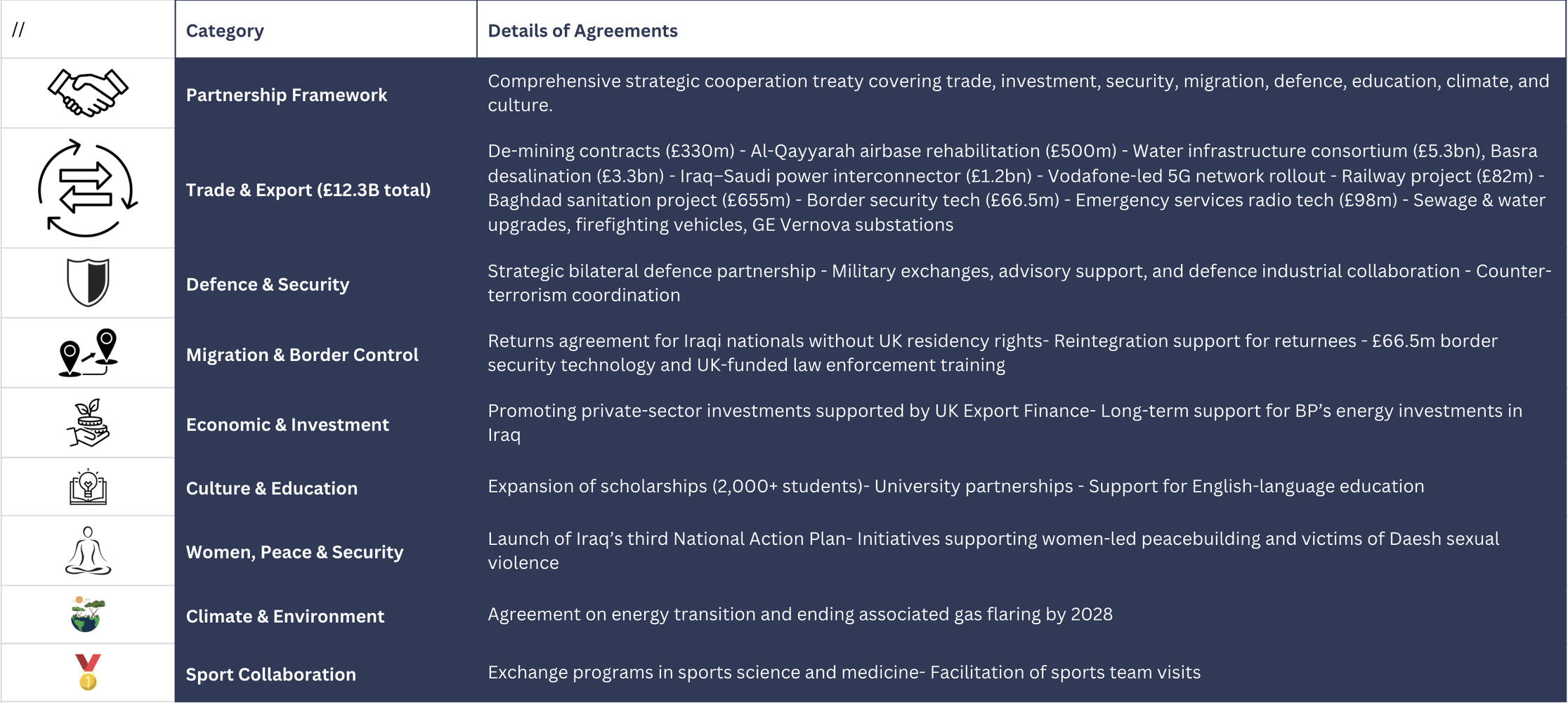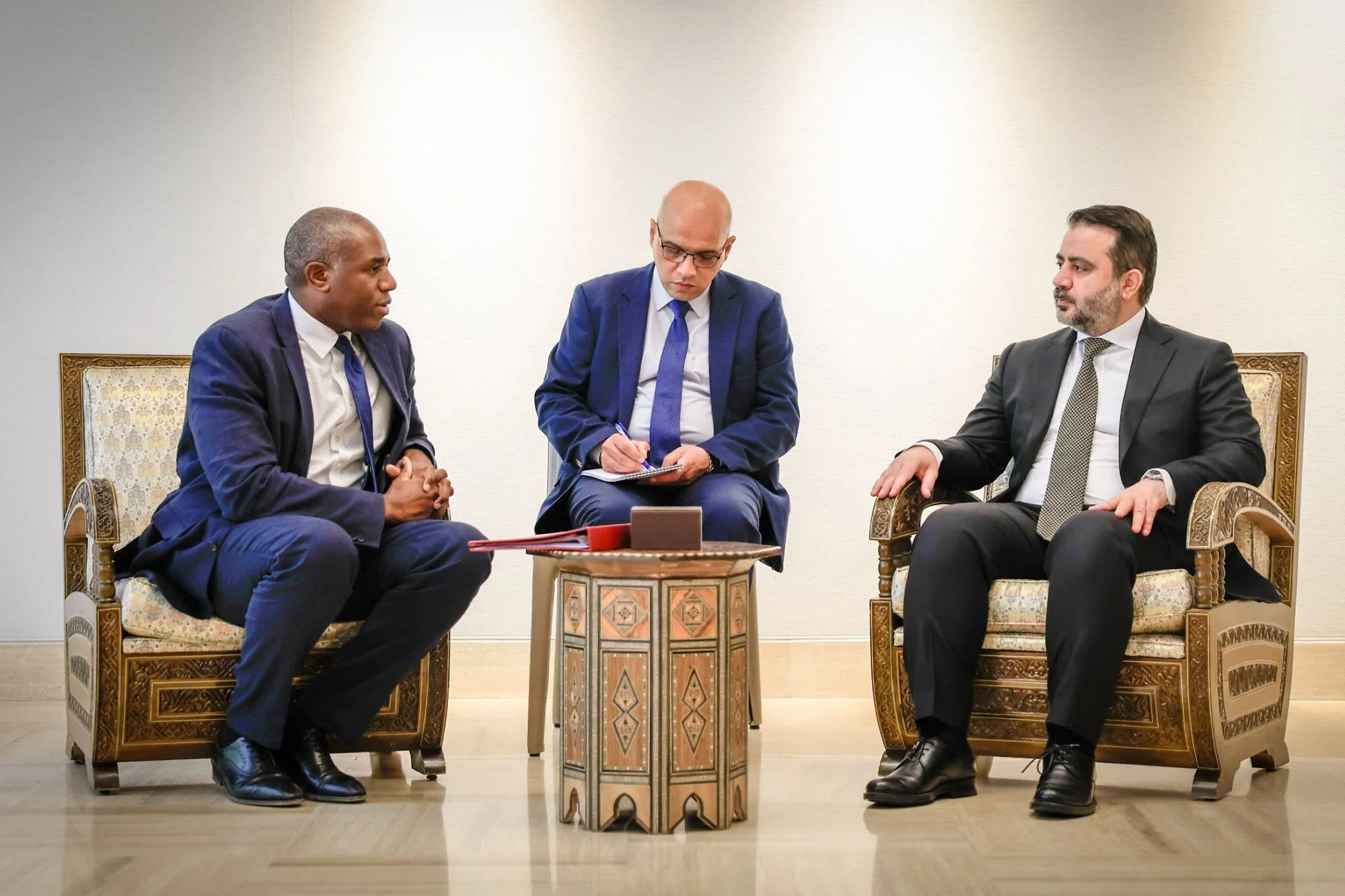What the Future Holds for UK–Syria Relations
In early July 2025, Foreign Secretary David Lammy visited Damascus and met Syria’s new interim president, Ahmed al-Sharaa, restoring official ties more than a decade after London cut off the Assad Regime.
Lammy made clear that Britain’s interests lie in supporting Syria’s new government “to deliver their commitment to build a stable, more secure and prosperous future for all Syrians” . A stable Syria, he noted, would directly benefit the UK by “reducing the risk of irregular migration” and “tackling the threat of terrorism”.
Foreign Secretary David Lammy with Syria's interim president Ahmed al Sharaa in Damascus. Pic: X / @DavidLammy
This approach suggests the UK will likely pursue a relationship with Syria much like its recently deepened partnership with Iraq – blending security cooperation, migration management, and economic engagement in an effort to foster stability.
Over the past three years, UK–Iraq relations have significantly improved, marked by high-level exchanges including Home Secretary Yvette Cooper’s visit to Baghdad and Prime Minister Mohammad Shia al-Sudani’s subsequent trip to the UK, hosted by Prime Minister Keir Starmer. These diplomatic efforts resulted in several major agreements spanning a broad range of sectors, including trade, defence, security, migration management, education, and climate cooperation.
The new path of UK–Iraq cooperation – combining security measures, migration agreements, and economic support – offers a glimpse of what London may seek in Syria now that relations are thawing.
Forecasting UK-Syria Relations
Lammy’s focus on reducing irregular migration indicates the UK will prioritize joint efforts with Syria to dismantle migrant smuggling networks. Similar to its agreement with Iraq, Britain is likely to pursue a security pact with Damascus targeting border security and intelligence-sharing.
Additionally, the UK will likely seek arrangements for returning Syrian nationals whose asylum claims have been unsuccessful. Currently, 7,386 Syrian asylum claims are in the UK pending an assessment of conditions in Syria following regime change in December 2024. For returns to proceed, Britain will require assurances from Syria regarding judicial reforms and the protection of returnees’ human rights.
Economic cooperation will also be key; the UK has committed an additional $129 million for humanitarian aid and reconstruction and will likely encourage British investments in infrastructure, energy, and telecommunications, mirroring its recent economic engagement in Iraq.
Syria’s interim foreign minister, Asaad al-Shaibani (R), meets with British Foreign Secretary David Lammy (L) in Damascus, Syria on July 5, 2025. (SANA/AFP)
Outlook
The reengagement between Britain and Syria is fundamentally pragmatic.
After years of isolation, London now sees an opportunity to shape Syria’s post-war trajectory in a way that serves both Syrians and British interests.
However, this path is not without challenges. Trust-building with the Syrian authorities (even a new interim government) will take time, and the UK will be cautious given Syria’s fraught recent history. Ensuring that any migrant-return deal respects international law and human rights will be paramount; Britain will not want to be seen as sending people back to face potential harm.



